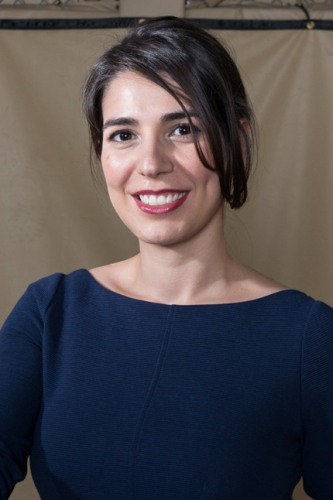 Brown Engineering and Computer Science Associate Professor Nora Ayanian will present at the 2024 SXSW Conference, held March 8-12. The SXSW Conference provides an opportunity for the global community of digital creatives to encounter cutting-edge ideas, discover new interests, and network with other professionals who share a similar appetite for forward-focused experiences, and the 2050 track where Ayanian’s presentation falls showcases long-range, big-picture thinking, with topics that range from nanotech breakthroughs and interplanetary expeditions to life-extension research and novel applications of scientific discoveries. These sessions are designed to sneak a peek into the not-so-distant future.
Brown Engineering and Computer Science Associate Professor Nora Ayanian will present at the 2024 SXSW Conference, held March 8-12. The SXSW Conference provides an opportunity for the global community of digital creatives to encounter cutting-edge ideas, discover new interests, and network with other professionals who share a similar appetite for forward-focused experiences, and the 2050 track where Ayanian’s presentation falls showcases long-range, big-picture thinking, with topics that range from nanotech breakthroughs and interplanetary expeditions to life-extension research and novel applications of scientific discoveries. These sessions are designed to sneak a peek into the not-so-distant future.
Other panel participants with Ayanian are David Koelle (Charles River Analytics), Amir Rahman (NASA Jet propulsion lab), and Giovanni Beltrame (Polytechnique Montréal).
The group describes its programming as collections of robots working together to achieve tasks. Swarm systems provide solutions to challenges in agriculture, search and rescue, planetary exploration, warehouse automation, nanomedicine, and many more fields. While people currently operate single robots (even in homes), there are fundamental differences between operating a single robot and a swarm. The panel of experts at this session will discuss current research, future applications, and challenges in the adoption and wide-scale use of swarms.
“I am excited for the opportunity to share the state of the art in multi-robot systems and swarms, as well as our recent work on creating robot art, with the diverse community of artists, entrepreneurs and technologists at SXSW,” said Ayanian.
Ayanian’s research focuses on creating solutions that allow non-experts to use teams of robots safely and effectively. To do so, she develops algorithms that coordinate teams of robots working on complex tasks that use only high-level specifications, such as using multitouch inputs to control a team of unmanned aerial vehicles. Ayanian’s approach to multi-robot systems leverages diversity in robot decision making and physical capabilities to build more resilient teams that can be successful even in unforeseen circumstances. By studying small-group human interaction and using AI and machine learning, robots are able to adjust to their current circumstances, work collaboratively, and accomplish tasks autonomously. Her solutions are broadly applicable across all aspects of multi-robot systems and mobile sensor networks, including manufacturing, entertainment, environmental monitoring, and precision agriculture.
Swarms: Current Research and Future Applications will take place on March 12 from 4-5 p.m. CT at the JW Marriott in Austin, Texas.